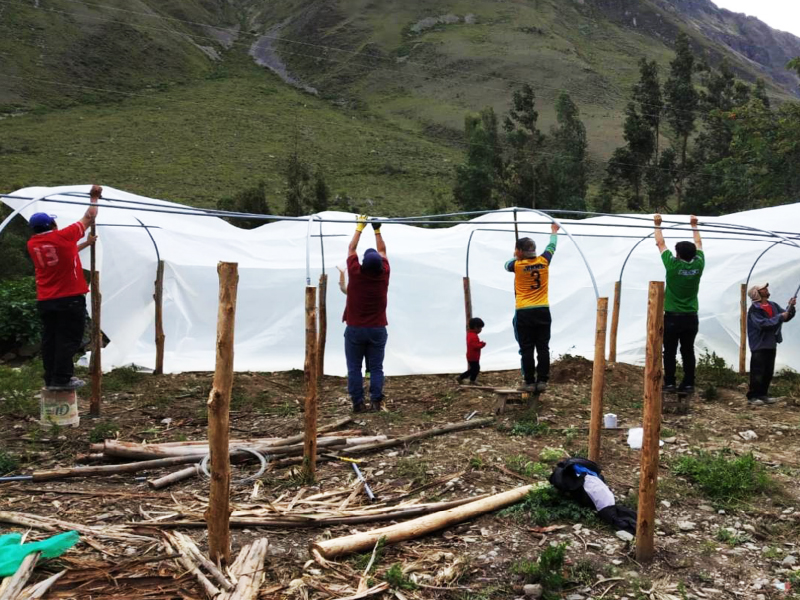
BGR partner Wawa Sonqo of Cusco, Peru, has been working since 2006 to break the cycle of poverty that affects 24 percent of Cusco’s population. Wawa Sonqo focuses its efforts on three pillars: education, nutrition, and health. The aim of this BGR-sponsored project is to address malnutrition in children and young people in the Palomar sector of the Ch’illka community, located northwest of Cusco in the Andean foothills. Currently, children and families consume food of low quality, mostly noodles, rice, and potatoes. The project will raise awareness among families, especially mothers and pregnant women, about nutrition and the development of healthy eating habits, and provides corresponding training in the cultivation, preparation, processing, and preservation of fruits and vegetables. The project additionally supplies instruction and materials for the construction and use of the simple greenhouses known as Fito awnings. The project is expected to reach a minimum of 45 peasant families and to have 112 direct beneficiaries, more than half of them children. The project seeks to create new habits and customs to enable long-term food autonomy. Annually renewable project

BGR partner Wawa Sonqo of Cusco, Peru, has been working since 2006 to break the cycle of poverty that affects 24 percent of Cusco’s population. Wawa Sonqo focuses its efforts on three pillars: education, nutrition, and health. The aim of this BGR-sponsored project is to address malnutrition in children and young people in the Palomar sector of the Ch’illka community, located northwest of Cusco in the Andean foothills. Currently, children and families consume food of low quality, mostly noodles, rice, and potatoes. The project will raise awareness among families, especially mothers and pregnant women, about nutrition and the development of healthy eating habits, and provides corresponding training in the cultivation, preparation, processing, and preservation of fruits and vegetables. The project additionally supplies instruction and materials for the construction and use of the simple greenhouses known as Fito awnings. The project is expected to reach a minimum of 45 peasant families and to have 112 direct beneficiaries, more than half of them children. The project seeks to create new habits and customs to enable long-term food autonomy. Annually renewable project




